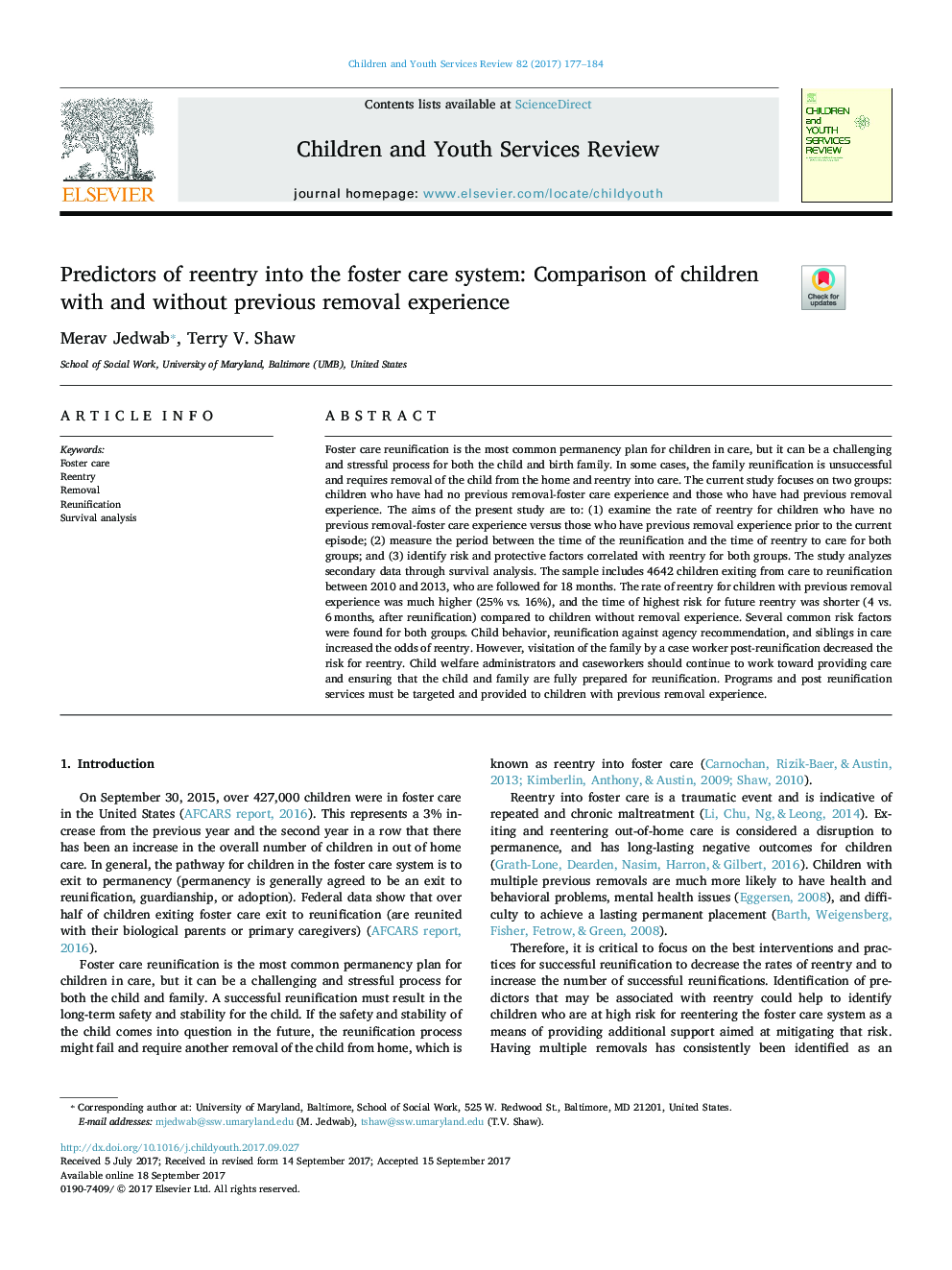| Article ID | Journal | Published Year | Pages | File Type |
|---|---|---|---|---|
| 4936189 | Children and Youth Services Review | 2017 | 8 Pages |
Abstract
Foster care reunification is the most common permanency plan for children in care, but it can be a challenging and stressful process for both the child and birth family. In some cases, the family reunification is unsuccessful and requires removal of the child from the home and reentry into care. The current study focuses on two groups: children who have had no previous removal-foster care experience and those who have had previous removal experience. The aims of the present study are to: (1) examine the rate of reentry for children who have no previous removal-foster care experience versus those who have previous removal experience prior to the current episode; (2) measure the period between the time of the reunification and the time of reentry to care for both groups; and (3) identify risk and protective factors correlated with reentry for both groups. The study analyzes secondary data through survival analysis. The sample includes 4642 children exiting from care to reunification between 2010 and 2013, who are followed for 18Â months. The rate of reentry for children with previous removal experience was much higher (25% vs. 16%), and the time of highest risk for future reentry was shorter (4 vs. 6Â months, after reunification) compared to children without removal experience. Several common risk factors were found for both groups. Child behavior, reunification against agency recommendation, and siblings in care increased the odds of reentry. However, visitation of the family by a case worker post-reunification decreased the risk for reentry. Child welfare administrators and caseworkers should continue to work toward providing care and ensuring that the child and family are fully prepared for reunification. Programs and post reunification services must be targeted and provided to children with previous removal experience.
Related Topics
Health Sciences
Medicine and Dentistry
Perinatology, Pediatrics and Child Health
Authors
Merav Jedwab, Terry V. Shaw,
